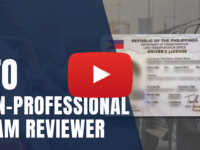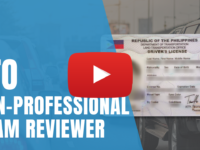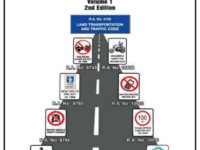There are two main sectors of insurance in the United States: property-casualty insurance and life-health insurance. Life-health insurance covers the financial consequences of death, injury, or sickness, while property-casualty insurance covers the financial consequences of damage to people’s and businesses’ property and/or their legal liability to others. Everyone who works in insurance (as well as those who purchase it) should understand the basic types of coverage. While life-health insurance is a large and important industry, this discussion focuses on the types of property-casualty policies that are available.
Property-casualty insurance can be broken down into two categories: personal (for individuals and families) and commercial (for businesses). Both people and businesses purchase coverage based on their loss exposures. Because situations and loss exposures vary, a variety of policies are available to meet customers’ needs.
What Are the Types of Personal Insurance Policies?
Let’s walk through the most common types of personal insurance policies. Remember, under an insurance policy, the insurer reimburses the insured for covered losses. For personal insurance policies, the insured is a person:
Homeowners
A homeowners policy provides coverage for both property and legal liability. The property portion of the policy gives people protection for when their homes and/or belongings are damaged (for example, by fire) or stolen. The liability portion provides coverage for situations such as the family dog biting a guest.
Personal auto
A personal auto policy, or PAP, also covers property damage and liability. Most people are familiar with the concept of auto insurance, because most auto owners are legally required to have it. If the insured is at fault in an accident, a PAP can provide coverage for bodily injury to another person or damage to another person’s auto. It also provides coverage for damage to the insured auto from a collision, fire, theft, or similar cause of loss (not wear and tear).
Personal watercraft
If a person owns a boat, he or she may need a personal watercraft policy, which covers legal liability arising from accidents involving the boat and physical damage to the boat.
Personal umbrella
Sometimes, people need higher limits of liability insurance than they can purchase through a homeowners policy or a PAP. In these situations, personal umbrella coverage can provide additional protection. This is most appropriate for individuals or families with a high potential for large liability losses, and policy limits are usually in the millions.
What Are the Types of Commercial Insurance Policies?
Now, let’s turn our attention to commercial policies—those purchased by a business to cover its loss exposures. Many businesses purchase a combination policy, such as a commercial package policy (CPP) or a businessowners policy (BOP), but we’ll look at each type of policy separately (although this is not a definitive list):
Commercial property
Commercial property insurance covers damage to buildings or their contents that results from fire, vandalism, and other causes of loss.
Commercial crime
Commercial crime insurance protects against losses from theft of business property and money. This coverage can include employee theft as well as theft by others during a robbery or burglary.
Commercial general liability (CGL)
CGL insurance protects a business against its legal liability to others for bodily injury and property damage. This coverage can apply to damage or injury that takes place at a business’s location or because of one of its products. For example, a customer could slip and fall on a store’s wet floor and be injured, and a customer could also be injured by using a defective product.
Commercial auto
Commercial auto is similar to personal auto insurance except that it applies to a business rather than to an individual. It covers liability for bodily injury and property damage caused by the use of the business’s autos and also damage to the business’s own autos when they are in an accident.
Workers compensation
Most business organizations are required to pay certain benefits to their employees for job-related injuries and illnesses. Workers compensation insurance covers these benefits.
Commercial umbrella
A commercial umbrella policy provides additional liability limits beyond those provided by the CGL, commercial auto, and other policies—protecting a business in the event of a large liability loss.
Summary
Insurers provide coverage for individuals’ and businesses’ loss exposures through a variety of policies. It’s important to understand the basic types of coverage and how personal and commercial policies can be used to meet different needs.









0 Comments